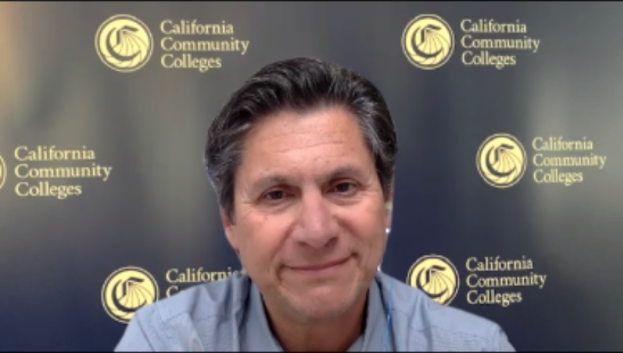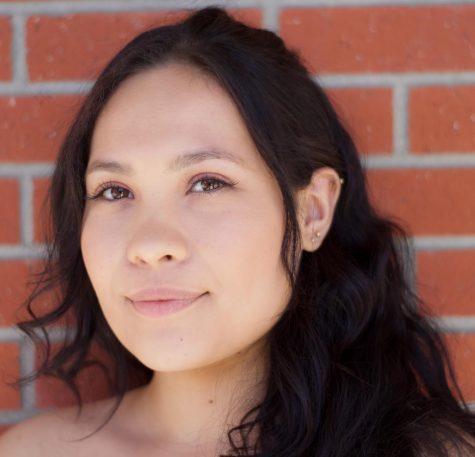California community colleges sue federal government over aid
The office of the state chancellor is pushing back on eligibility requirements
Chancellor of California Community Colleges Eloy Ortiz Oakley hosted a second media teleconference on Zoom to inform student journalists of the new challenges the system is facing. Zoom screenshot
May 22, 2020
About 800,000 community college students in California were left without access to emergency aid from the federal government, which was designed to help those hurt by COVID-19.
In a teleconference with student media from across the state, California Community Colleges Chancellor Eloy Ortiz Oakley made it clear state officials aren’t going to accept that without a fight.
The topic was one of many covered by Oakley in his updates about continuing online education and the lawsuit filed over the coronavirus relief bill, also known as the CARES Act, on May 12.
The state chancellor’s office filed a lawsuit against the U.S. Secretary of Education Betsy DeVos over the eligibility requirements of emergency relief funds.
Citizens who have not completed federal financial aid applications, non-citizens, DACA students and veterans were excluded.
“We will continue to stand firm behind our students, particularly our undocumented students, and advocate for them to receive the support that they deserve to be successful, and our campuses will continue to be a place of safety and stability for them,” Oakley said.
Oakley mentioned that the lawsuit was filed after the Department of Education issued a FAQ about the use of the coronavirus relief bill funds that used language contrary to Congress’ intent.
“It is our hope that we stop the U.S. Department of Education from enforcing arbitrary, what we feel are arbitrary, eligibility restrictions on relief funds that Congress approved to mitigate the impact of COVID-19,” Oakley said.
In addition, he said the state is working on a pandemic recovery plan and how to slowly re-open. Each community college will determine the process of reopening in its local area.
“We have convened a task force to help us look at ways in which we can safely reopen our campuses to the public. We will still continue to limit access to what you are normally used to. Lots of activities that you are used to will look very different in the fall,” Oakley said.
He also mentioned that colleges should still expect to continue online instruction as he has outlined in the past. Due to education continuing online, that can last until the fall or even beyond.
Oakley added that the state is working on providing future physical protocols to ensure that students receive the best instruction possible.
The Executive Vice Chancellor of Educational Services Marty J. Alvarado, who was also included in the teleconference, mentioned that they are working with financial aid components so students’ awards aren’t interrupted due to the changing processes.
“We are working with our CEO representative officer to plan reopening. There are a lot of different solutions that are in play right now,” Alvarado said. “The challenge here is that there isn’t a one-size-fits-all solution.”
Oakley said programs such as performing arts and those requiring in-person labs are working with colleges to ensure students have access to tools and labs they need in order to perform and be successful.
“We have a lot of work to do, in terms of our social justice efforts in order to ensure that everyone is treated equally,” Oakley said.
For more information and updates, click here.











